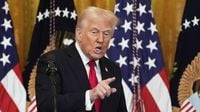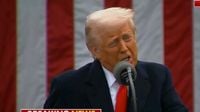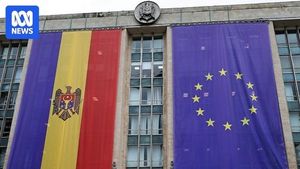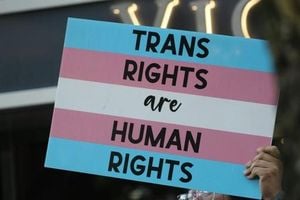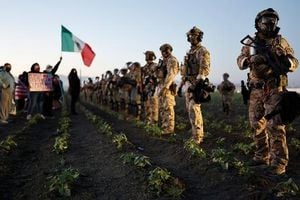In a surprising move, U.S. President Donald Trump announced a 10% tariff on imports from Heard Island and McDonald Islands, a remote Australian territory known for its uninhabited status and unique wildlife. The decision, made on April 2, 2025, is part of Trump’s broader strategy to impose economic pressure on nations he perceives as imposing unfair trade restrictions on the United States.
Heard Island and McDonald Islands (HIMI), located approximately 4,100 kilometers southwest of mainland Australia, are recognized as a UNESCO World Heritage site. These islands are ecologically pristine, featuring a variety of wildlife, including seals, penguins, and seabirds, but they lack any permanent human population. Official records indicate that there have been no significant imports or exports from these islands, raising eyebrows over the rationale behind the tariff.
Critics and social media users were quick to respond to the announcement, questioning the logic of targeting an uninhabited territory. One user on X commented, “Trump just imposed tariffs on an island that’s literally just penguins and ice. Are the penguins supposed to pay up?” Another joked, “BREAKING: Penguin economy collapses under U.S. trade war.” The absurdity of the situation has led to a flurry of memes, with images of penguins holding signs that read “No Tariffs!” circulating online.
Trump’s decision to impose tariffs on Heard Island and McDonald Islands is part of a larger list of trade restrictions announced, which also includes new tariffs on major trading partners like China, India, and the European Union, with some rates soaring above 20%. This sweeping action is seen as an extension of Trump’s ongoing trade war, which he claims is necessary to protect American jobs from countries that have exploited U.S. trade policies.
Australian Prime Minister Anthony Albanese expressed confusion over the inclusion of such obscure locations in the tariff list, stating, “I’m not quite sure that Norfolk Island, with respect to it, is a trade competitor with the giant economy of the United States, but that just shows and exemplifies the fact that nowhere on earth is exempt from this.” This sentiment was echoed by many who question the effectiveness of targeting territories with little to no trade activity.
The inclusion of HIMI in the tariff list has sparked discussions about the implications of such decisions. Critics argue that this could undermine the credibility of Trump's trade policies, especially since the islands are not known to engage in any significant trade activities. The White House defended the decision, stating that the islands were listed because they are Australian territories, but many remain puzzled by the rationale.
In addition to Heard Island and McDonald Islands, other uninhabited locations targeted by the tariffs include Jan Mayen, a Norwegian territory in the Arctic Ocean, and Norfolk Island in the South Pacific. Jan Mayen is primarily inhabited by military and meteorological personnel, while Norfolk Island has a small population of about 2,000 residents.
Despite the humorous reactions to the tariffs, the economic ramifications are serious. Following Trump’s announcement, U.S. stock futures plummeted, with the Dow Jones Industrial Average falling nearly 1,000 points and NASDAQ and S&P futures dropping by 3 to 4%. Retail giants like Dollar Tree and Walmart saw significant declines in their stock prices, with losses of 11% and 6%, respectively, in after-hours trading.
Trump has maintained that these tariff increases will ultimately benefit American consumers by revitalizing domestic manufacturing. “More production at home will mean stronger competition and lower prices for consumers,” he stated confidently. However, economic analysts have voiced concerns that the immediate effects of these tariffs could lead to higher prices for American families, reduced business investments, and lower overall economic growth.
As the trade war continues to escalate, the inclusion of Heard Island and McDonald Islands in the tariff list serves as a reminder of the unpredictable nature of Trump’s trade policies. While the president aims to leverage tariffs as a negotiating tool in international trade, the impact on the global economy—and the absurdity of targeting uninhabited territories—raises questions about the future of U.S. trade relations.
In summary, the announcement of a 10% tariff on imports from Heard Island and McDonald Islands has generated widespread attention and amusement, highlighting the peculiarities of Trump’s trade strategy. While the president seeks to address perceived injustices in global trade, the effectiveness of such measures, especially when directed at territories with no active trade, remains to be seen.


